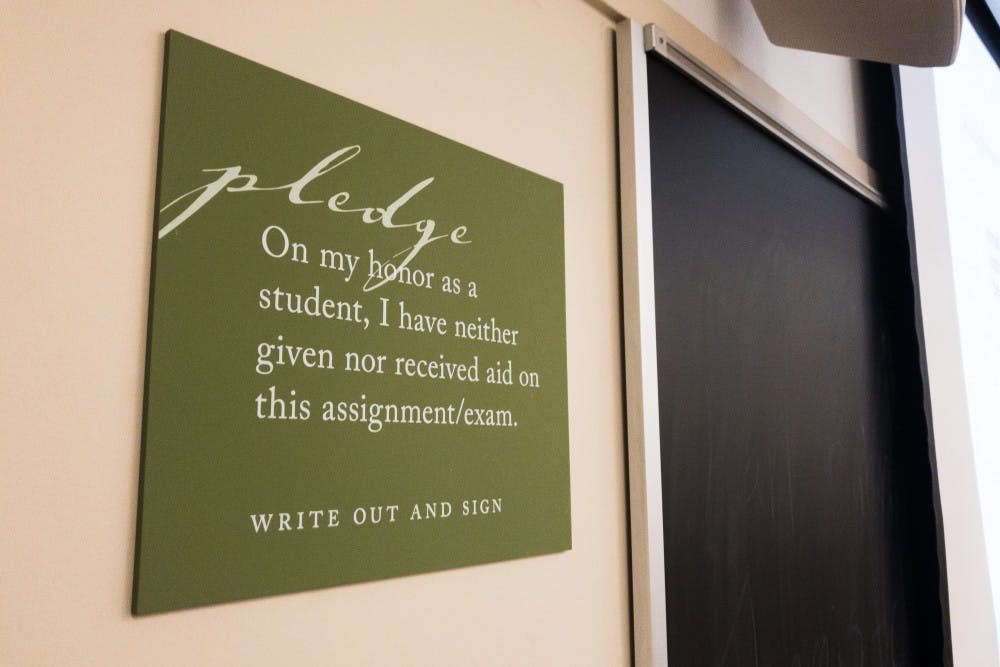The Honor Committee is considering changes to its support officer system in an effort to make the Committee more representative of the entire student body. These changes present the Committee with an opportunity to shape their support officer pool into a body that represents a more diverse set of viewpoints and backgrounds, while still maintaining its quality. As the group most intimately involved with the Honor trial process, support officers must be informed and receptive to multiple points of view — implementing the proposed changes would help the body better accomplish this goal.
The process of selecting support officers each fall takes time and energy on the part of both the Committee and the applicants. In addition to being a time-intensive process, many aspects can be intimidating to applicants. From those who pass the online exam, 180 are selected to participate in the first round of interviews. This interview includes a mock trial, in which interviewees must evaluate and present their case. Those applicants who make it through to the next round are asked to participate in a second interview that tests interviewees’ understanding of the Committee, and are also required to give a presentation on Honor to a University group of their choice. Finally, 30 to 45 students are selected to begin a 10- to 12-week training process, at the end of which they will be accepted as support officers.
Changes proposed by Committee representatives would focus on several elements of the application process to make it more open and accessible to members of the University community. One of the most intimidating aspects of the process is the interview setting, which often take place in Lawn rooms. These interviews could easily turn potential applicants away — being surrounded by several veteran Committee members in a close setting like a Lawn room adds pressure to what is already an intense situation. One of the changes would move the interviews away from Lawn rooms and into a more open space, which would help interviewees feel more comfortable. While the shift in location would not change any of the content of the interview process, it is one of several important changes in helping the Committee be more accessible to the University community.
While the changes would not be implemented until the fall, the Committee should continue to have conversations over the summer about how to best include underrepresented communities. Another aspect of the process that could be further examined is the recruitment calendar. Currently, recruitment takes place only in the fall and is a semester-long process — students who want to get involved in the spring have to wait until recruitment opens back up in early September. Implementing a spring recruitment window would give students who would otherwise have to wait, such as spring transfer students, an easier path to get involved. Spring recruitment would also give the Committee more opportunities to recruit diverse applicants. The proposed changes outlined thus far are important steps towards accomplishing this goal, and through more introspection and discussion the Committee can come up with even better changes that would give all students an equal path to membership.
Maintaining the rigor of the application process is important for the continued quality of the support officer pool, so changes made should preserve the Committee’s ability to evaluate the capacity of individual applicants. Increasing diversity should be the primary goal of these changes. Committee members have acknowledged the need to open the organization to underrepresented communities. As an organization that has the ability to expel students, the Committee has a responsibility to mirror the composition of the student body at large. Making meaningful changes to the support officer selection process would demonstrate the Committee’s commitment to reaching this goal.
The Cavalier Daily Editorial Board is composed of the executive editor, the editor in chief and three at-large members of the paper. The board can be reached at eb@cavalierdaily.com.







